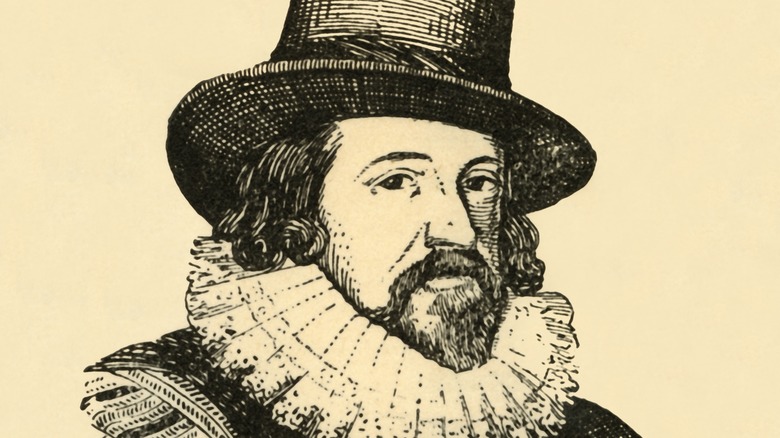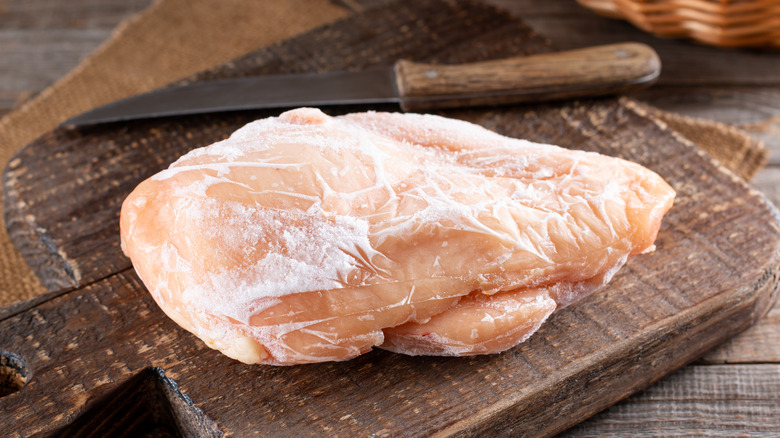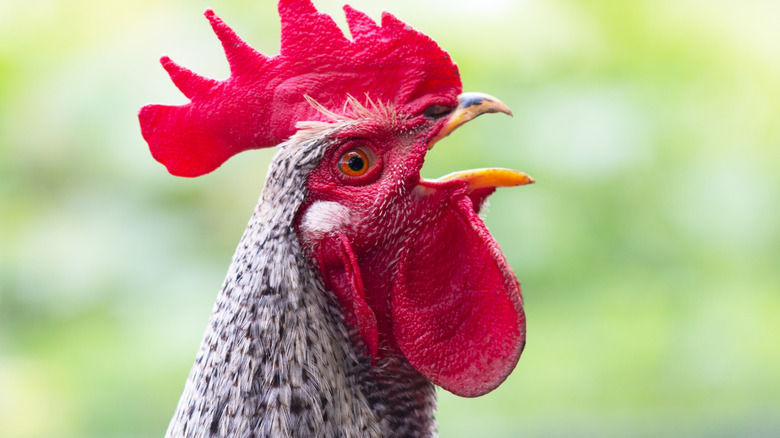The Odd Chicken Experiment That Led To The Death Of Sir Francis Bacon
You're reading a book on famous figures in 1600s England. In your book, you will inevitably come across a character by the name of Sir Francis Bacon. As you read about Bacon and his achievements in the world of philosophy, politics, and the sciences, you may have the all-encompassing thought: "Man, wouldn't it be nuts if this guy died trying to experiment on a chicken?"
Francis Bacon was born on January 22, 1561, to an aristocratic family, his father being "Lord Keeper of the Seal" and his mother being the daughter of Edward VI's personal tutor and sister-in-law to Lord Burghley. A bright young man, Bacon attended Trinity College at age 12, before going to the "Honourable Society of Gray's Inn" to study law alongside his brother. Bacon held a somewhat rebellious academic view, finding humanism much more preferable to the popularly-held views of Aristotelianism.
It was this academic view that lead Bacon to help pioneer one of the most basic but revered academic and educational models of all time: the scientific method. As Famous Scientists tells us, although Bacon's life was marred by bribery and corruption scandals during his time practicing law, his contribution to the world of science was to lay the foundations for the modern-day scientific method, which scientists such as Robert Boyle later popularized.
But if this was a man who pioneered science above all else, what was he doing with a chicken that wound up killing him?
Bacon died trying to freeze a chicken
If you want to freeze a chicken breast nowadays, all you have to do is open your freezer and toss the chicken in there for a little bit while you go do something else. In 17th-century England, however, people weren't exactly buying fancy refrigerators for their kitchens, so the act of freezing food had to be accomplished in other ways. Bacon reasoned that natural refrigeration, such as ice and snow, could help to preserve certain foods.
According to World News Today, Bacon's experiment in preserving foods involved taking a chicken and stuffing it full of snow, believing the natural coldness of the snow would prevent the chicken from spoiling. Unfortunately for Bacon, while he may have been the first to discover the frozen chicken, the experiment of shoveling ice into the rear end of a plucked chicken in the middle of a blizzard may have had a less than stellar outcome for the statesmen.
Bacon caught pneumonia (presumably from his frosty experiment) and passed away in 1626 at the age of 65. Oddly enough, some debate over Bacon's precise manner of death remains to this day. London Remembers claims that Bacon wrote in one of his final letters that he became very sick after performing experiments on himself — what those experiments were, he didn't seem to say, but he also definitely didn't mention a chicken.
While Bacon's contribution to the scientific world lives on, it seems his chicken story has followed him into the present as well.
Bacon may have made a ghost chicken
Contributions to the modern understanding of science aside, it seems that Bacon may or may not have created a unique type of "ghost" following his experiment with the frozen chicken.
Mental Floss tells us that, for over several decades, there have been reports of a "ghost" chicken haunting the area of Pond Square, where it is said Bacon performed his chicken experiment. The ghostly chicken is described as being "half-plucked," or having lost most of its feathers, and is usually spotted running around in circles or, in one case, harassing couples in the park by running to them and squawking loudly. In its defense, if you were shaved and stuffed full of snow by a complete stranger, you'd be pretty mad too. Some reports even place the sound of an old-time horse and carriage at the scene, presumably that of Bacon's carriage stopping to grab the chicken and stuff it full of ice.
So popular is the urban legend of the Pond Square Ghost Chicken that it was actually made into a children's film. According to Ham & High, "The Ghostly, Frozen Chicken of Highgate Hill" details how, after its untimely and humiliating death, the fated chicken haunted Sir Francis Bacon until the day he died, where it then spends the rest of its ghostly life haunting the town. The next time you're in that part of the United Kingdom, maybe skip on a chicken dinner – you never know who could be watching.


